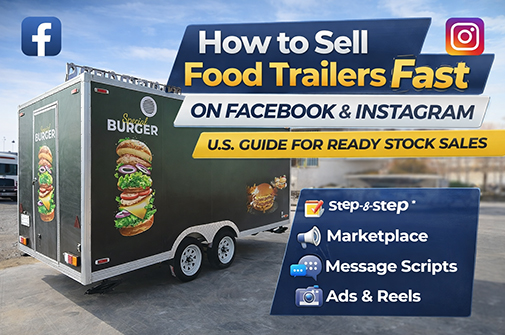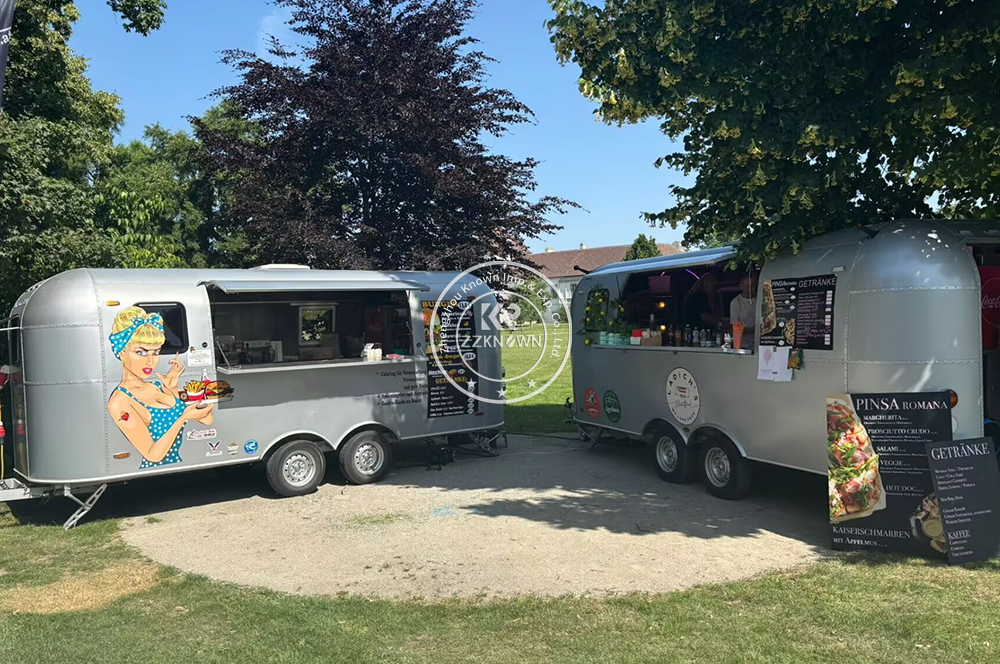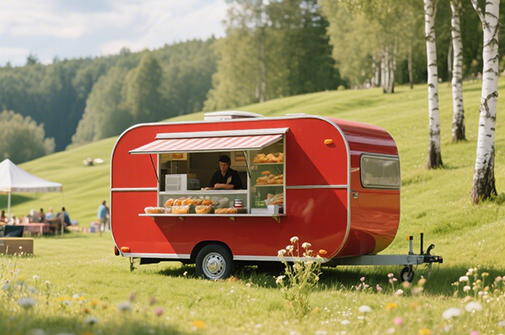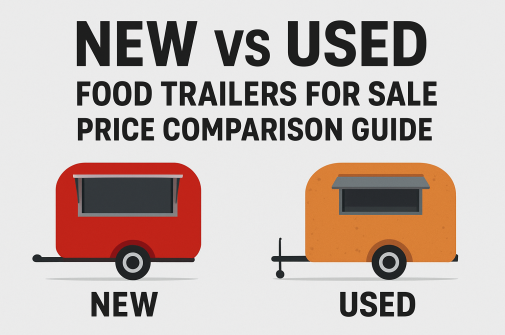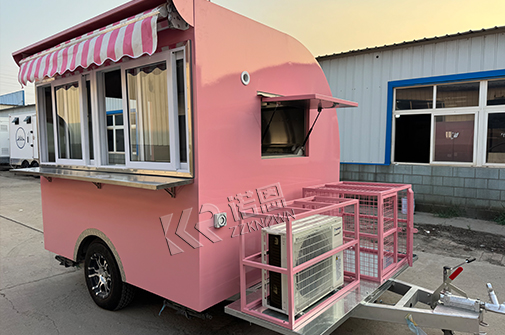In Germany, registering and operating a food truck trailer requires compliance with a series of strict regulations. These regulations cover road safety, food hygiene, environmental standards, and more. Below are the key points to consider when registering and operating a food truck trailer in Germany:
In Germany, food truck trailers must be registered with the local transportation authorities, ensuring compliance with road traffic regulations. Food truck trailers need to be registered as roadworthy vehicles and must undergo annual technical inspections.
Registration Requirements: Food truck trailers must provide valid purchase proof, Vehicle Identification Number (VIN), insurance, the owner's identification, and proof of compliance with road-use technical inspections.
Vehicle Inspection: According to German law, all commercial vehicles (including food truck trailers) must undergo regular technical inspections (TÜV) to ensure their safety and compliance.
Before and during registration, food truck trailers must pass a comprehensive safety inspection. This includes checks on the braking system, lighting system, tires, suspension, and more. Here are some of the key requirements:
Braking System: The food truck trailer must be equipped with an efficient braking system, especially if its total weight exceeds certain limits.
Lights and Signaling System: All lighting and signaling devices, including tail lights, turn signals, and brake lights, must be operational.
Tires and Suspension: Tires should be in good condition, and the suspension system must meet safety standards.
Food truck trailers in Germany are subject to strict weight and size restrictions. Overloading or exceeding size limits can lead to fines or other legal liabilities.
Maximum Total Weight: The total weight of the food truck trailer, including food, equipment, and other items, must comply with the maximum weight limits specified in German road transport laws. These limits vary based on the trailer's specific type and usage.
Size Restrictions: The length, width, and height of the food truck trailer must comply with German road transport regulations. Typically, the width should not exceed 2.55 meters, and length is also limited.
As a business involved in food service, food truck trailers must comply with Germany's food hygiene and safety regulations. These regulations cover food storage, handling, and sales:
Food Storage and Cold Chain Management: The food truck trailer must be equipped with refrigeration that meets German food safety standards to ensure that food is stored at safe temperatures during transport and storage.
Hygiene Facilities: The trailer must have adequate water supply and drainage systems for cleaning equipment and food. It should also have sanitation facilities such as handwashing sinks and disinfecting stations.
Food Preparation Area: The food preparation area must be separated from waste and sewage areas to maintain a clean and safe environment for food handling.
In Germany, food truck trailers used for commercial purposes are required to have appropriate insurance coverage. This not only ensures compliance with legal requirements but also protects your business from financial losses due to accidents or unforeseen events. Common types of insurance include:
Commercial Vehicle Insurance: Covers damages, theft, or accidents involving the food truck trailer.
Public Liability Insurance: Protects your food truck business in case customers or third parties file claims for food poisoning or other accidents.
Property Insurance: Covers damage to equipment and supplies inside the food truck trailer.
In Germany, food truck trailers are also required to meet environmental standards, especially in urban areas or regions with environmental protection requirements. Ensuring your food truck trailer has fuel-efficient and low-emission equipment can help comply with German environmental regulations.
Emission Standards: Food truck trailers must meet European Union (EU) emission standards, particularly for fuel and diesel vehicles. Ensuring the trailer complies with the latest emission regulations reduces its environmental impact.
Noise Limitations: Noise produced by the food truck trailer during operation must remain within the prescribed limits to avoid disturbing the surrounding environment.
In Germany, the driver of the food truck trailer must hold a valid driver's license and, depending on the trailer's weight and classification, may require additional permits. Common license requirements include:
Class C License: For heavier food truck trailers, the driver must hold a Class C commercial driver's license.
Light Commercial Driver's License: For lighter food truck trailers, a regular Class B driving license is usually sufficient.
The exterior and advertising of food truck trailers must comply with Germany's commercial advertising regulations. The exterior should clearly display the business's brand, logo, and menu items. Advertisements must follow legal guidelines and avoid misleading or false claims.
In Germany, registering and operating a food truck trailer involves several regulatory aspects, including vehicle registration, technical safety inspections, food hygiene standards, commercial insurance, and more. To ensure that your food truck trailer complies with all relevant regulations, it is recommended to familiarize yourself with local laws and consult with local authorities.
By adhering to these regulations, food truck operators can not only ensure legal compliance but also build trust with customers and enhance their business reputation.
If you have any questions or need further assistance, feel free to contact us, and we will provide you with professional guidance and support.
